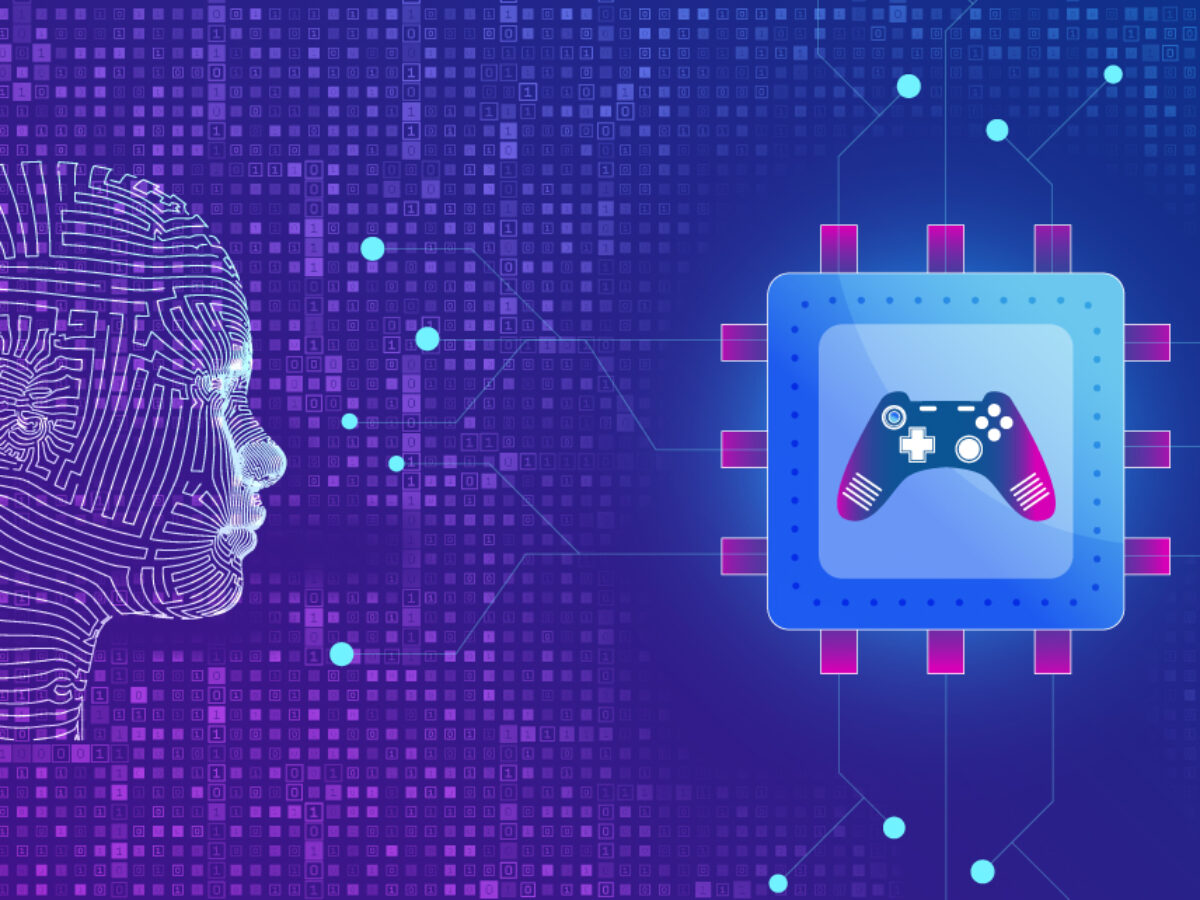How AI is Transforming the Gaming Industry

Developers can create incredibly realistic characters, dynamic environments, and responsive game worlds, making the gaming experience more captivating than before.
They can go further with AI computers' processing capability, enabling games to adjust to each player's preferences and style for a customized experience.
This revolution has significantly increased both the visual appeal and interactive quality of gaming.
Here’s a closer look at how AI is reshaping gaming for players like you, bringing new levels of excitement and personalisation.
1. Smarter Non-Player Characters (NPCs)
In video games, non-player characters (NPCs) are virtual beings that the player cannot control.
Advanced AI NPCs powered by AI computer represent the next phase in the evolution of non-player characters. They are equipped with state-of-the-art technology, such as machine vision, text-to-speech synthesis, emotional processing models, and natural language understanding.
These developments allow NPCs to have complex, dynamic, and real-time discussions while demonstrating a keen sense of players and their local environment.
2. Procedural Content Generation
The term "PCG" refers to the algorithmic creation of game content with little to no human involvement. It includes a range of methods for creating complex and varied game features.
AI improves PCG by using deep learning and machine learning to produce more complex and customized content.
AI's Benefits in Procedural Content Generation
Scalability and Efficiency: AI can produce large volumes of content rapidly, and gaming worlds can grow without requiring correspondingly longer development times.
Variety and Replayability: They are enhanced by AI-generated content, which can provide distinct experiences with every playthrough.
Cost Savings: By eliminating the need for sizable teams of artists and designers, content generation automation lowers development expenses.
Enhanced Creativity: AI is capable of producing surprising and original content, giving game designers fresh ideas.
3. Personalized Gaming Experiences
AI assists game developers in making the gaming experience tailored according to the preferences and habits of particular gamers.
Machine learning algorithms can analyze the player's style, speed, or decisions to set the level of difficulty, storyline, or even interactions by the characters to fit the player's taste.
This personal experience keeps players more interested because it is only they who encounter this challenge and this story arc in their own unique ways.
Even personalized recommendations exist where AI-powered suggestions help the player find new games that he or she can enjoy.
4. Enhanced Graphics and Visual Realism
AI is changing the look of games a lot in photorealism and a lot in smooth animations.
With deep learning models, AI can offer improved detail in texture, facial animation, and detailed environmental effects. With AI-driven upscaling, for example in some consoles and AI computers, even their low resolution looks much sharper and more detailed now.
This makes it possible to develop highly immersive worlds with realistic characters, increasing the emotional response of players to the game.
5. Improved Game Testing and Quality Assurance
The process of developing a game has strong testing and quality assurance processes, which ensure that the games do not contain bugs or glitches.
AI is a vital tool for contemporary game testing because of its capacity to handle massive data sets, learn from patterns, and simulate intricate situations.
This would limit the time and resources spent in hand testing and release games with reduced technical difficulties, which result in a less troublesome player experience and enjoyment.
6. AI-driven storytelling and Dynamic Narratives
AI is creating new opportunities for games to tell dynamic and adaptive stories. AI in game creation enables stories to evolve depending on player decisions and actions rather than adhering to linear narratives, giving each player a unique experience.
AI can create customized storylines by evaluating choices, changing the plot, character interactions, or even the result of the game.
Storytelling is changed by this degree of participation, which gives players a greater sense of responsibility and involvement in the plot.
7. AI-Driven Game Mastering
An emerging trend in the gaming business is AI-driven game mastering, which seeks to give gamers rich, customized experiences.
The capacity of games to dynamically modify gameplay mechanics, difficulty settings and story points in response to user actions is known as game mastery.
Games can use artificial intelligence (AI) to examine player behavior, learning styles and preferences and modify the game experience to fit each player's tastes.
This AI-driven game mastering produces more immersive and satisfying gaming experiences, which guarantees that players are continuously challenged, rewarded and engaged.
In Summary
AI is transforming the gaming industry by making NPCs smarter, creating uniquely generated game worlds, and developing graphics that provide a better quality and personalized experience.
With AI technologies, games are becoming more interactive, exciting and tailored to each gamer.
Artificial intelligence is not only transforming games but also reshaping the way players engage with virtual worlds. As AI advances, the future of gaming shines brightly, putting an exciting new era in players’ hands and providing a gateway to a very exciting new age in gaming.
Note: IndiBlogHub features both user-submitted and editorial content. We do not verify third-party contributions. Read our Disclaimer and Privacy Policyfor details.





